Filter by

Writing The Digital History Of Nazi Germany
This book will consider how the outcomes of “doing history digitally” include different kind of sources and data, as well as new ways of researching historical questions, and innovative forms of presenting history. All contributions focus on aspects related to the history of National Socialism, World War II and the Holocaust.
- Edition
- -
- ISBN/ISSN
- 9783110714692
- Collation
- -
- Series Title
- -
- Call Number
- Berlin/Boston
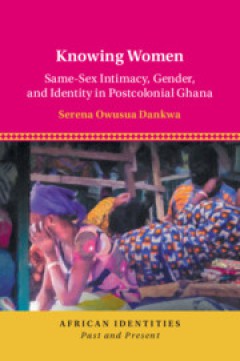
Knowing Women :Same-Sex Intimacy, Gender, and Identity in Postcolonial Ghana
Knowing Women is a study of same-sex desire in West Africa, which explores the lives and friendships of working-class women in southern Ghana who are intimately involved with each other. Based on in-depth research of the life histories of women in the region, Serena O. Dankwa highlights the vibrancy of everyday same-sex intimacies that have not been captured in a globally pervasive language of …
- Edition
- -
- ISBN/ISSN
- 9781108863575
- Collation
- ix, 332 p ; ill
- Series Title
- -
- Call Number
- 306.766309667 KNO S
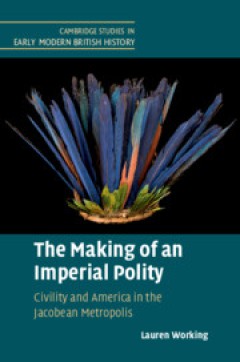
The Making of an Imperial Polity :Civility and America in the Jacobean Metrop…
Bringing to life the interaction between America, its peoples, and metropolitan gentlemen in early seventeenth-century England, this book argues that colonization did not just operate on the peripheries of the political realm, and confronts the entangled histories of colonialism and domestic status and governance. The Jacobean era is reframed as a definitive moment in which the civil self-prese…
- Edition
- -
- ISBN/ISSN
- 9781108625227
- Collation
- xiv, 270 p ; ill
- Series Title
- -
- Call Number
- 970.02 MAK L
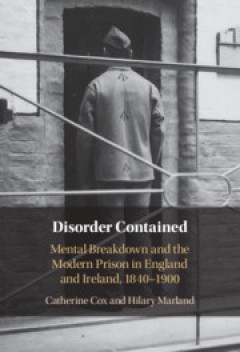
Disorder Contained :Mental Breakdown and the Modern Prison in England and Ire…
Disorder Contained is the first historical account of the complex relationship between prison discipline and mental breakdown in England and Ireland. Between 1840 and 1900 the expansion of the modern prison system coincided with increased rates of mental disorder among prisoners, exacerbated by the introduction of regimes of isolation, deprivation and hard labour. Drawing on a range of archival…
- Edition
- -
- ISBN/ISSN
- 9781108993586
- Collation
- ix, 318 p ; ill
- Series Title
- -
- Call Number
- 365.608740941 DIS C

Polio Across the Iron Curtain :Hungary's Cold War with an Epidemic
By the end of the 1950s, Hungary became an unlikely leader in what we now call global health. Only three years after Soviet tanks crushed the revolution of 1956, Hungary became one of the first countries to introduce the Sabin vaccine into its national vaccination programme. This immunization campaign was built on years of scientific collaboration between East and West, in which scientists, spe…
- Edition
- -
- ISBN/ISSN
- 9781108355421
- Collation
- ix, 268 p ; ill
- Series Title
- -
- Call Number
- 616.835009439 POL D
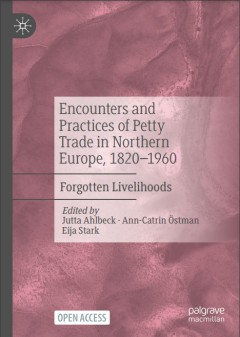
Encounters and Practices of Petty Trade in Northern Europe, 1820–1960
This open access book uncovers one important, yet forgotten, form of itinerant livelihoods, namely petty trade, more specifically how it was practiced in Northern Europe during the period 1820–1960. It investigates how traders and customers interacted in different spaces and approaches ambulatory trade as an arena of encounters by looking at everyday social practices. Petty traders often belo…
- Edition
- -
- ISBN/ISSN
- 9783030980801
- Collation
- xiv; 353p; ill.
- Series Title
- -
- Call Number
- 381.094809034 ENC J
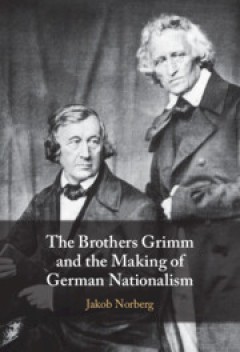
The Brothers Grimm and the Making of German Nationalism
In the first comprehensive English-language portrait of Jacob and Wilhelm Grimm as political thinkers and actors, Jakob Norberg reveals how history's two most famous folklorists envisioned the role of literary and linguistic scholars in defining national identity. Convinced of the political relevance of their folk tale collections and grammatical studies, the Brothers Grimm argued that they cou…
- Edition
- -
- ISBN/ISSN
- 9781009063890
- Collation
- viii, 268 p
- Series Title
- -
- Call Number
- 943.070922 BRO J
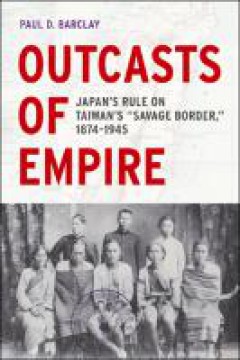
Outcasts of empire :japan's rule on taiwan's "savage border," 1874-1945
"Outcasts of Empire unveils the causes and consequences of capitalism’s failure to “batter down all Chinese walls” in modern Taiwan. Adopting micro- and macrohistorical perspectives, Paul D. Barclay argues that the interpreters, chiefs, and trading-post operators who mediated state-society relations on Taiwan’s “savage border” during successive Qing and Japanese regimes rose to prom…
- Edition
- -
- ISBN/ISSN
- 9780520968806
- Collation
- xvii. ;ill. :301. p
- Series Title
- -
- Call Number
- 951.24904. OUT p

A Civil Society; The Public Space Of Freemason Women in France, 1744-1944
"James Smith Allen explores the two-hundred-year struggle to initiate women as full participants in the masonic brotherhood that shared in the rise of France’s civil society and its “civic morality” on behalf of women’s rights. "
- Edition
- -
- ISBN/ISSN
- 9781496229687
- Collation
- -
- Series Title
- -
- Call Number
- -
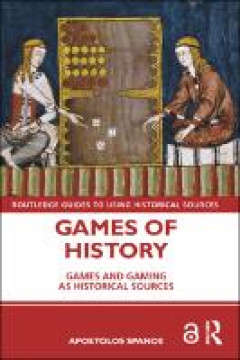
Games of history :games and gaming as historical sources
Games of History provides an understanding of how games as artefacts, textual and visual sources on games and gaming as a pastime or a “serious” activity can be used as sources for the study of history. From the vast world of games, the book’s focus is on board and card games, with reference to physical games, sports and digital games as well. Considering culture, society, politics and me…
- Edition
- -
- ISBN/ISSN
- 9780367358914
- Collation
- ix, 200p.; ill.
- Series Title
- -
- Call Number
- 371.397 GAM s
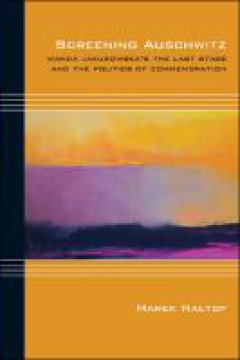
Screening Auschwitz; Wanda Jakubowska's The Last Stage And The Politics of Co…
This book about the early screen representation of Auschwitz-Birkenau deals with the classic Holocaust film made in 1948 in Poland by Auschwitz survivor, director Wanda Jakubowska. The Last Stage (or The Last Stop) is a pioneering work – the first narrative film to portray the former Nazi German camp. Haltof discusses Jakubowska’s life and career before World War II, her imprisonment during…
- Edition
- -
- ISBN/ISSN
- -
- Collation
- Knowledge Unlatched (KU)
- Series Title
- -
- Call Number
- -
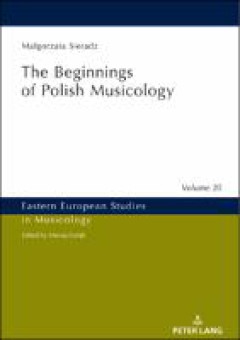
The Beginnings of Polish Musicology
The book presents the history of the only strictly scientific Polish musicological periodical Kwartalnik Muzyczny. It shows how the editorial board of the periodi-cal met with true approval and harsh criticism. The subject allows the author to present the beginnings of Polish musicology and its evolution through three epochs: the late partitioning period, the interwar period of Poland’s indep…
- Edition
- -
- ISBN/ISSN
- 9783631823774
- Collation
- -
- Series Title
- -
- Call Number
- -
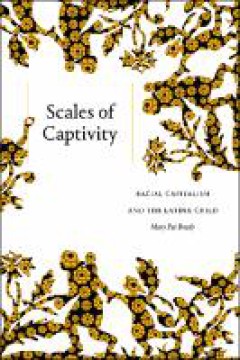
Scales of captivity :racial capitalism and the Latinx child
Mary Pat Brady traces the figure of the captive and cast-off child over 150 years of Latinx/Chicanx literature as a critique of colonial modernity and the forms of confinement that underpin racialized citizenship.
- Edition
- -
- ISBN/ISSN
- 9781478092445
- Collation
- ix, 313p.
- Series Title
- -
- Call Number
- 810.9868073 SCA b

The Florida room
Alexandra T. Vazquez listens to the music and history of Miami to explore the city’s sonic cultures and its material and social realities.
- Edition
- -
- ISBN/ISSN
- 9781478092704
- Collation
- xiii, 259p.; ill.
- Series Title
- -
- Call Number
- 780.9759381 FLO v

A Good Example of Peaceful Coexistence? The Soviet Union, Austria, And Neutra…
This monograph, based on newly declassified sources from Western and Russian archives as well as on communist texts about international law and neutrality, is the first English-language account of Soviet policy towards neutral yet capitalist Austria during the Cold War. In order to make neutrality a model for the West, the Kremlin presented the unique Soviet-Austrian relationship as "a good exa…
- Edition
- -
- ISBN/ISSN
- -
- Collation
- Knowledge Unlatched (KU)
- Series Title
- -
- Call Number
- -

Islam And Heritage in Europe:Pasts, Presents And Future Possibilities
Islam and Heritage in Europe provides a critical investigation of the role of Islam in Europe’s heritage. Focusing on Islam, heritage and Europe, it seeks to productively trouble all of these terms and throw new light on the relationships between them in various urban, national and transnational contexts. Bringing together international scholars from a range of disciplines, this collection ex…
- Edition
- -
- ISBN/ISSN
- 9780367491499
- Collation
- -
- Series Title
- -
- Call Number
- -
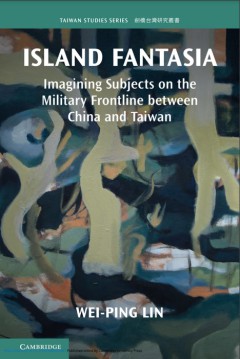
Island fantasia :imagining subjects on the military frontline between China a…
The Matsu archipelago between China and Taiwan, for long an isolated outpost off southeast China, was suddenly transformed into a military frontline in 1949 by the Cold War and the Communist-Nationalist conflict. The army occupied the islands, commencing more than 40 long years of military rule. With the lifting of martial law in 1992, the people were confronted with the question of how to move…
- Edition
- -
- ISBN/ISSN
- 9781009023481
- Collation
- xviii; 310p; ill.
- Series Title
- -
- Call Number
- 951.249 ISL W
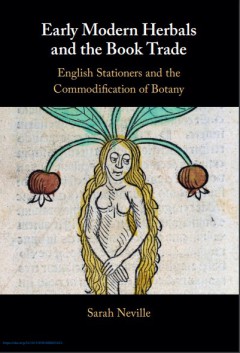
Early modern herbals and the book trade :English stationers and the commodifi…
Between 1525 and 1640, a remarkable phenomenon occurred in the world of print: England saw the production of more than two dozen editions identified by their imprints or by contemporaries as 'herbals'. Sarah Neville explains how this genre grew from a series of tiny anonymous octavos to authoritative folio tomes with thousands of woodcuts, and how these curious works quickly became valuable com…
- Edition
- -
- ISBN/ISSN
- 9781009031615
- Collation
- xvi; 290p; ill.
- Series Title
- -
- Call Number
- 615.3210942 EAR S

3D printing technologies
The family of technologies collectively known as additive manufacturing (AM) technologies, and often called 3D-printing technologies, is rapidly revolutionizing industrial production. AM’s potential to produce intricate and customized parts starting from a digital 3D model makes it one of the main pillars for the forthcoming Industry 4.0. Thanks to its advantages over traditional manufacturin…
- Edition
- -
- ISBN/ISSN
- 9783036531700
- Collation
- ix, 98p; ill
- Series Title
- -
- Call Number
- 620.0042 PRI P
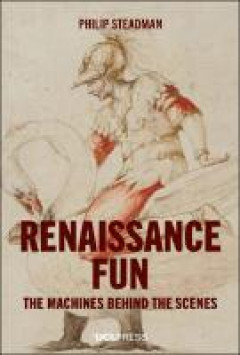
Renaissance fun
Renaissance Fun is about the technology of Renaissance entertainments in stage machinery and theatrical special effects; in gardens and fountains; and in the automata and self-playing musical instruments that were installed in garden grottoes. How did the machines behind these shows work? How exactly were chariots filled with singers let down onto the stage? How were flaming dragons made to fly…
- Edition
- -
- ISBN/ISSN
- 9781787359154
- Collation
- -
- Series Title
- -
- Call Number
- 792.02509031 REN
 Computer Science, Information & General Works
Computer Science, Information & General Works  Philosophy & Psychology
Philosophy & Psychology  Religion
Religion  Social Sciences
Social Sciences  Language
Language  Pure Science
Pure Science  Applied Sciences
Applied Sciences  Art & Recreation
Art & Recreation  Literature
Literature  History & Geography
History & Geography